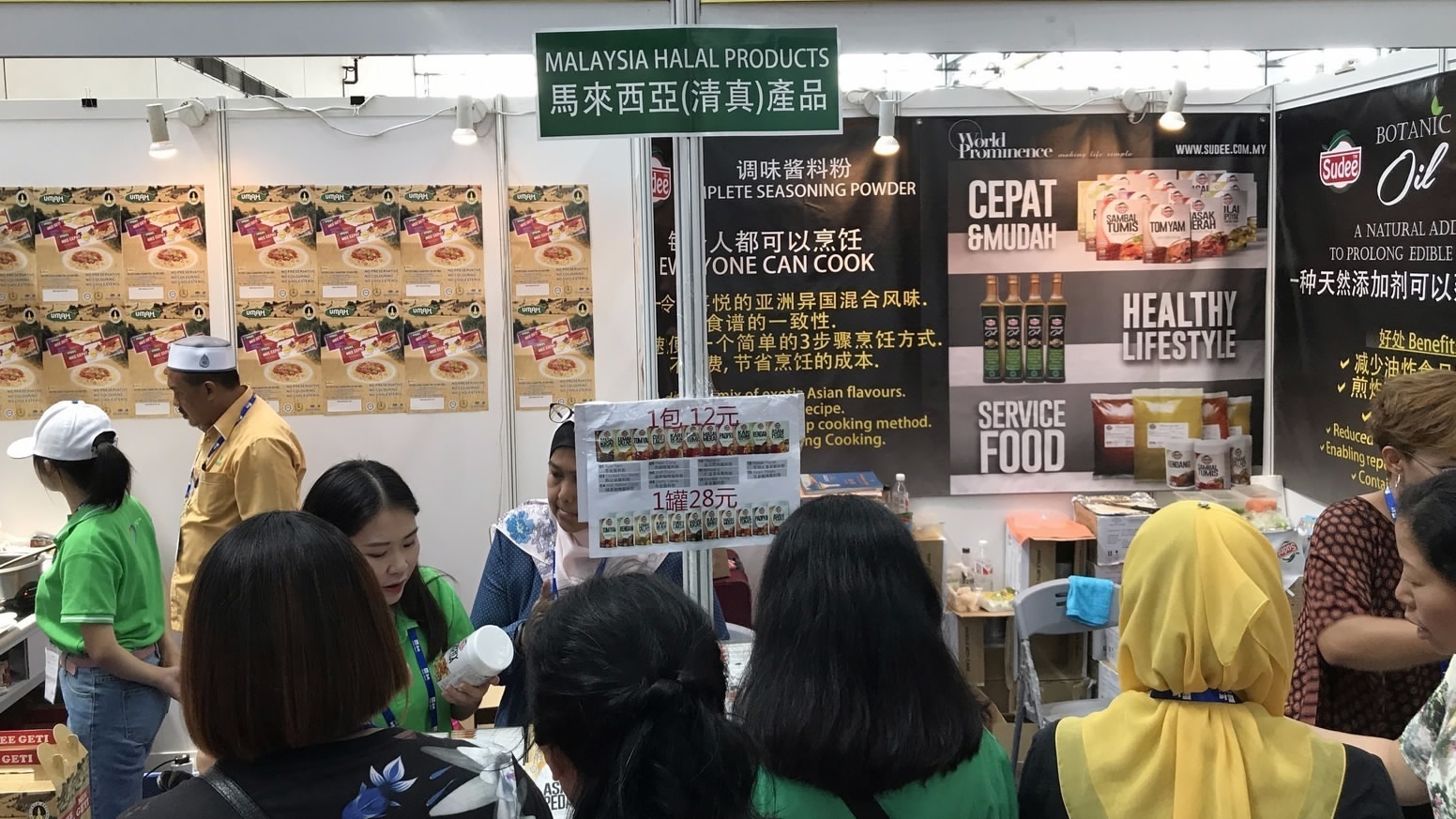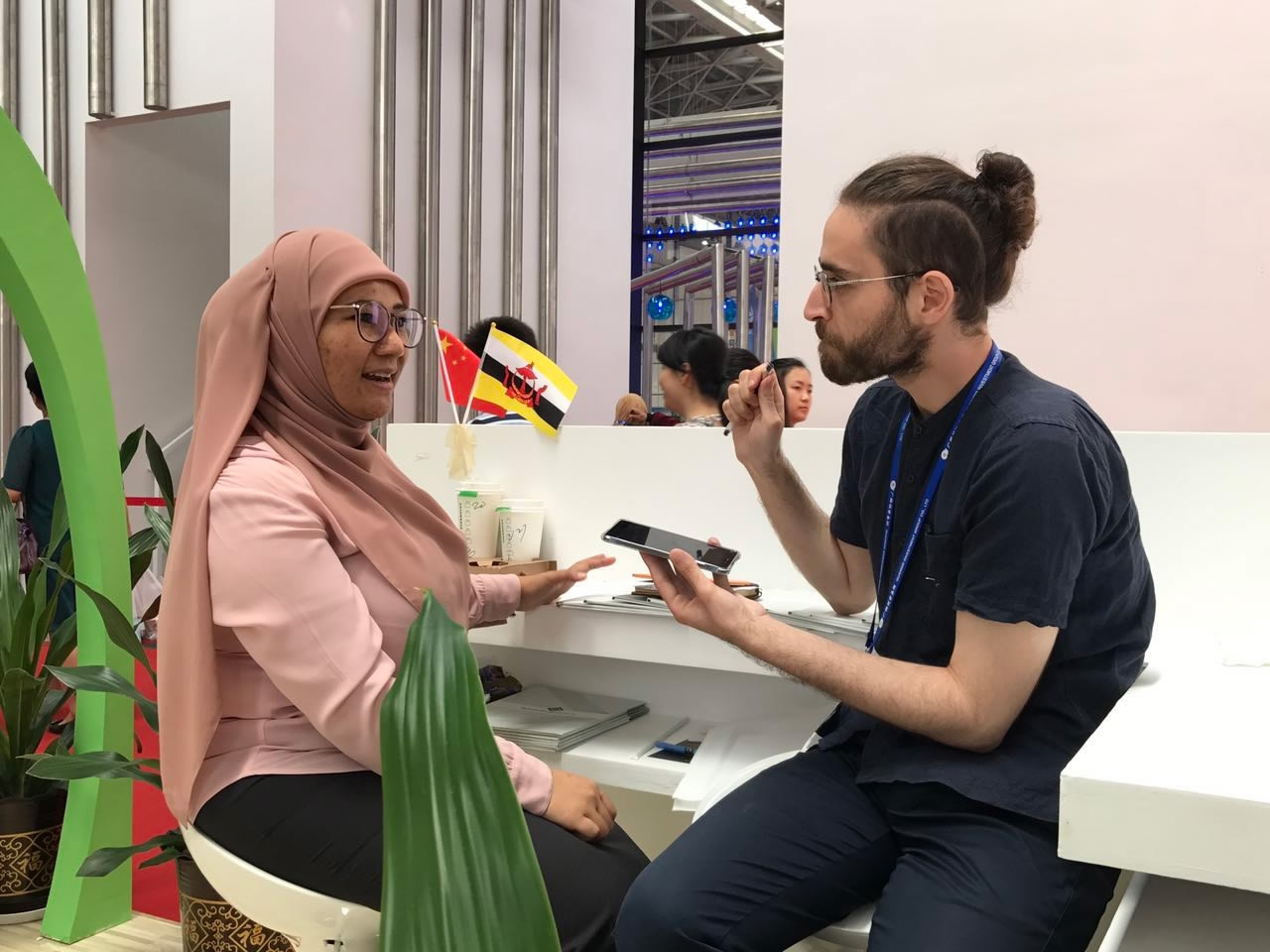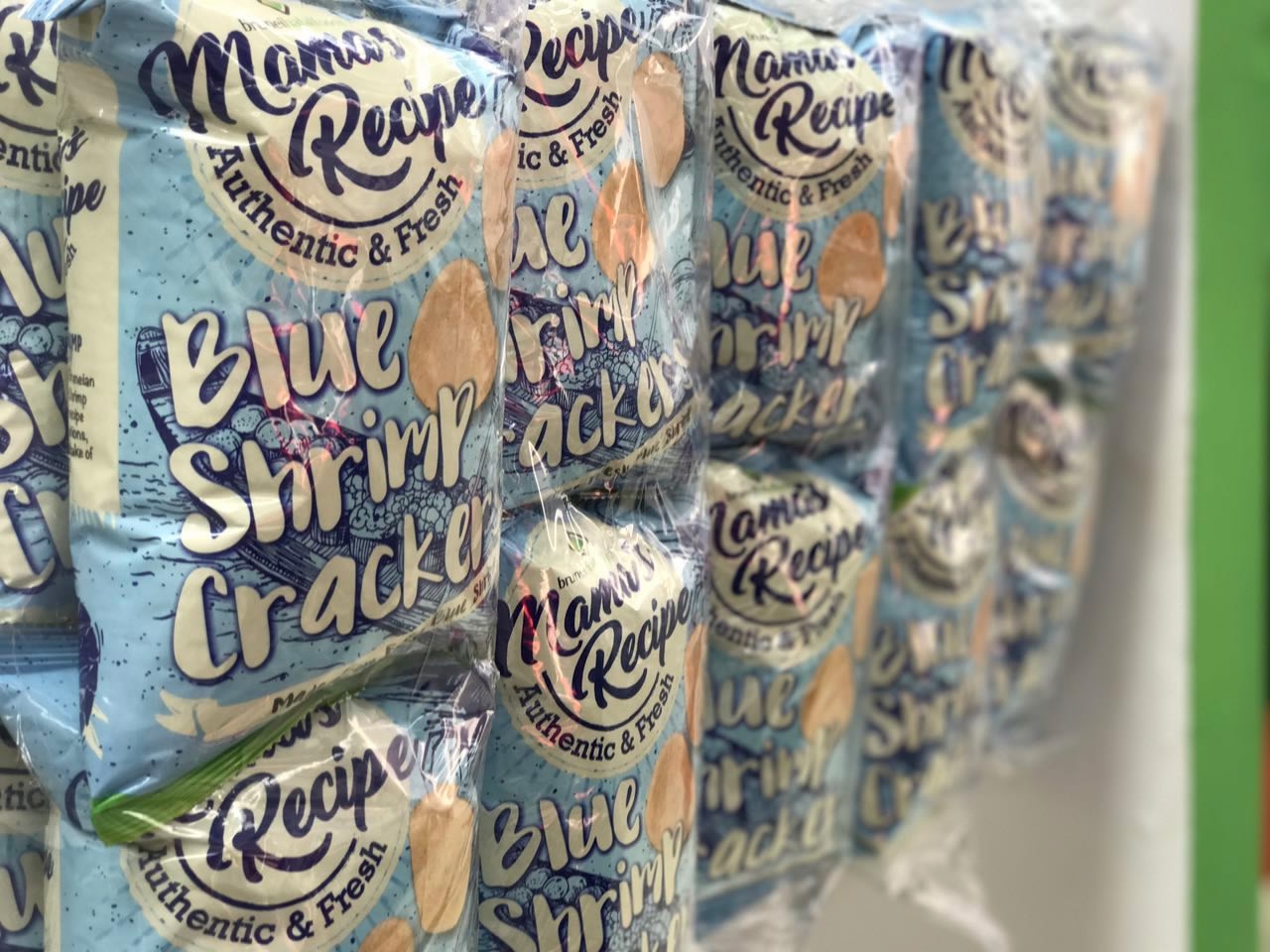
China
22:46, 14-Sep-2017
CAEXPO encounters: Chinese consumers want halal food without knowing
Nadim Diab

At the China-ASEAN Expo (CAEXPO) in Nanning, south China’s Guangxi Zhuang Autonomous Region, visitors are on a shopping spree, nabbing deals and stocking up on imported products. With bags clenched in each hand, they are making their way from one booth to another, sampling food, savoring flavors then sealing the deal. They seem to know what suits their taste buds, but a small logo, designed in the shape of a crescent or an eight-pointed star, is escaping their attention – although, once informed about its significance, they are quick to understand that this is exactly what they have been looking for.
“Chinese people are not actively seeking (the halal) logo, but the moment they see it they become a lot more interested,” Fatin Arifin, marketing manager at bruneihalalfoods, a company under the Bruneian Ministry of Finance, told CGTN.

Fatin Arifin, marketing manager at bruneihalalfoods, speaking to CGTN. /CGTN Photo
Fatin Arifin, marketing manager at bruneihalalfoods, speaking to CGTN. /CGTN Photo
The company is tasked with supporting the development of food businesses in the sultanate, and its product portfolio ranges from teriyaki chicken and lamb kofta sausages to blue shrimp crackers, unsweetened creamers and even water bottles – all marked with an emblem featuring a purple qubba (a mosque’s dome) and a blue crescent, designating their goods as halal.
Much like other merchandise of the same category, their products have been processed under Islamic law and in accordance with religious requirements. That means they are free from alcohol and pork, and come from animals that are not stunned when slaughtered, ensuring their production meets halal standards.
Bruneihalalfoods is proud of its certification by the Brunei Islamic Religious Council, but in China, their marketing strategy focuses on the “strict and stringent measures” that govern their supply chain and maintain food safety, as Arifin put it.
“There’s a massive gap in terms of understanding what halal food is. The Chinese market understands halal as healthy, wholesome and safe for consumption,” she said.
“This is at the moment how we are marketing ourselves. That’s the value of halal food that we are seeing”.

Blue shrimp crackers by bruneihalalfoods: Authentic, fresh and halal. /CGTN Photo
Blue shrimp crackers by bruneihalalfoods: Authentic, fresh and halal. /CGTN Photo
The limited knowledge of Chinese consumers about the symbols that identify a product as halal or what the term actually entails has not come in the way of sales – if anything the situation has given overseas businesses an opportunity to raise awareness about their products and expand their client base beyond the Muslim community.
Accommodating Muslims
There are around 26 million Muslims in China, just a fraction of the country’s population of 1.3 billion. But what they lack in size, they make up for in demand for halal foods, which is estimated at about 20 billion US dollars annually.
The trend is expected to pick up momentum, according to the International Halal Accreditation Forum (IHAF), driven by the demographics of the Muslim population in China. The country’s Muslims are younger than the national average age, with 41 percent of them under the age of 19, the Dubai-based organization points out.
The halal sector is forecast to be worth 1.9 trillion US dollars by 2021, a compound annual growth rate (CAGR) of nine percent from 2015. Small- and medium-sized enterprises (SMEs) from ASEAN countries are trying to tap into this huge market potential, and gain exposure among and the loyalty of Muslim consumers, making use of increased trade events to showcase their products.
Hazirah Che Hasim, managing director at Kuala Lumpur-based Fatiha Frozen Food, has already showcased her company’s durian pancakes, beef samosas and sardine rolls in Xi’an, northwest China’s Shaanxi Province, where around 50,000 of Hui Muslim people live.

Halal frozen fish pastry from Malaysia. /CGTN Photo
Halal frozen fish pastry from Malaysia. /CGTN Photo
She described her experience at the expo there as “awesome,” noting that demand was “very high” as halal food has become a staple.
For Azlin Mohammed Idris, also from Malaysia, coming to Nanning marked her third time visiting China. She has previously brought her family business of fish-based frozen food to Yiwu, a city in east China’s Zhejiang Province which has been described as the “fastest growing Muslim community in China,” and Ningxia Hui Autonomous Region in the northwest of the country, where Muslims account for 34 percent of the provincial-level region’s population.
Food beyond faith
But it’s not just Chinese Muslims these international halal food businesses are interested in. Consumers in the world’s second largest economy are known for their big appetite and willingness to spend big on food.
“We view China as a market opportunity, by being able to supply China we will be able to expand our distribution quite fast,” Arifin from bruneihalalfoods said.
Total retail sales of consumer goods in China reached 4.49 trillion US dollars in 2015, an increase of 10.7 percent year on year, according to the Annual Retail Foods Report published by the USDA Foreign Agricultural Service in January this year. Food consumption accounted for 31 percent of the annual expenditures of Chinese urban households in 2015, the report noted.

Hazirah Che Hasim, managing director at Fatihah Frozen Food, speaking to CGTN. /CGTN Photo
Hazirah Che Hasim, managing director at Fatihah Frozen Food, speaking to CGTN. /CGTN Photo
But Chinese are also dogged by concern over the quality of what they’re feeding themselves, following a string of high-profile food scares in recent years.
A 2016 survey by consulting firm McKinsey & Company showed that 72 percent of Chinese people are worried that what they are consuming can harm their health, up from the 60 percent recorded in 2012. The study also found that over 50 percent of consumers are now opting for nutritious food choices.
Exhibitors at CAEXPO believe that they can give quality-conscious consumers what they are looking for.
“Halal is not just for the Muslim market. For us, the value of halal food is that the standards that govern it are very strong. Halal means products that they (Chinese customers) could immediately trust. They will think ‘I am taking a good product,’” Arifin noted.
Che Hasim from Malaysia’s Fatihah agrees.
“Halal is an advantage, an extra. It is clean, it is 100 percent clean. Even if (customers) are not Muslims, they should buy halal products”.
CAEXPO has been a platform for these companies to get connected with local distributors and importers, and strengthen their foothold in the massive Chinese market.
“There’s a lot more demand than the supply we can offer,” Arifin stated.

SITEMAP
Copyright © 2018 CGTN. Beijing ICP prepared NO.16065310-3
Copyright © 2018 CGTN. Beijing ICP prepared NO.16065310-3